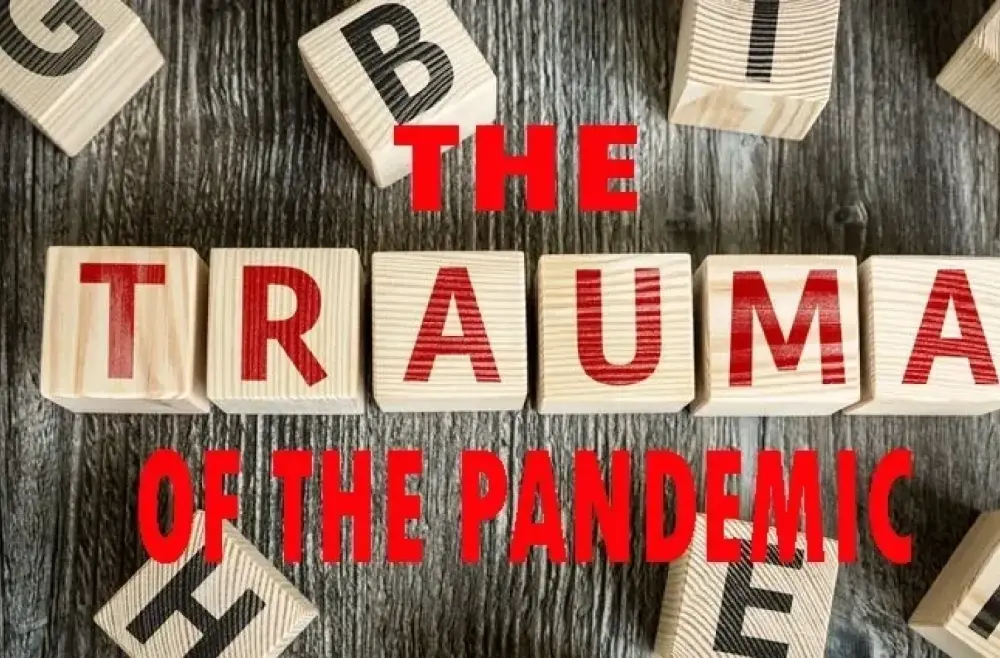
The trauma of the pandemic.
- Pablo Munoz Psychotherapist
Categories: Anger , Anxiety , Depression , Mindfulness , Relationship
Although the manner in which the human brain functions is still not fully understood by scientists, it seems fair to say that the human mind is indeed an incredible thing. But also, at the same time, it is very delicate and sensitive.
Nowadays we are starting to see some light at the end of a long tunnel that we all humans have been through the past year and a half: the global pandemic. This time has been a completely new experience for most of us, where our ways of living and the things that we were used to doing changed in a matter of days; there were, and still are, concerns about our safety and health; isolation and also over-interactions at home have affected our ways to relate to other human beings. We can call this time a traumatic experience.
Psychological trauma is a response to an event that a person finds highly stressful. A person may experience trauma as a response to any event they find physically or emotionally threatening or harmful. Trauma can cause a wide range of physical and emotional symptoms. However, on the other hand, not everyone who experiences a stressful event will develop trauma. There are also various types of trauma, including acute trauma that results from a single stressful or dangerous event.
As a result of the human psyche's internal “fight, flight or freeze” mechanism, an individual who experiences a particularly traumatic event may find themselves feeling denial, anger, fear, sadness, shame, confusion, anxiety, depression, numbness, guilt, hopelessness, irritability or difficulty concentrating.
While post-traumatic stress disorder was only acknowledged as a legitimate psychological disorder in the last fifty years or so, the condition has more or less always been around. What would eventually become known as PTSD was commonly referred to as “shell shock” in soldiers who have experienced particularly brutal fighting. Typically, an individual who is experiencing PTSD will have a particularly traumatic event occur in their lives. Things like deaths, violence and sexual assault are common events that can lead one to PTSD, although with that being said nearly any event that is sufficiently traumatic can give a person the condition.
This condition is still not fully understood, the last few decades have brought about some treatments that can be used for individuals with PTSD, with the eventual goal of these treatments being to overcome this past trauma entirely. Indeed, post-traumatic stress disorder is a psychological ailment that can occur in the days, weeks, months or even years following a traumatizing event that is characterized by uncontrollable troublesome thoughts.
The exact treatment for PTSD, like the symptoms, varies from individual to individual, although almost always an individual will embark upon a period of psychotherapy, with medication also being used in some cases. For a person experiencing PTSD, the goal is to teach them methods to deal with their past trauma so that they can eventually overcome the initial traumatic event. Talk therapy helps to safely face both situations and memories that you find frightening so that you can learn to cope with them effectively. In addition, and for severe cases, medication might be used to help an individual deal with these feelings of stress and anxiety in the short term until they can develop coping mechanisms to overcome the initial tragic event.
In summary, we need to be very careful about our mental state and emotional well-being after these months of living under this unique stress and where our lifestyles were put on pause. Be open to receive psychotherapeutic support if you feel that you cannot enjoy your life as you used to or if you feel that you cannot interact with others in the ways that you felt comfortable before this pandemic. Despite its impressive capabilities, the human mind can be a decidedly fragile thing. I am here for you.
Pablo Munoz
.png)